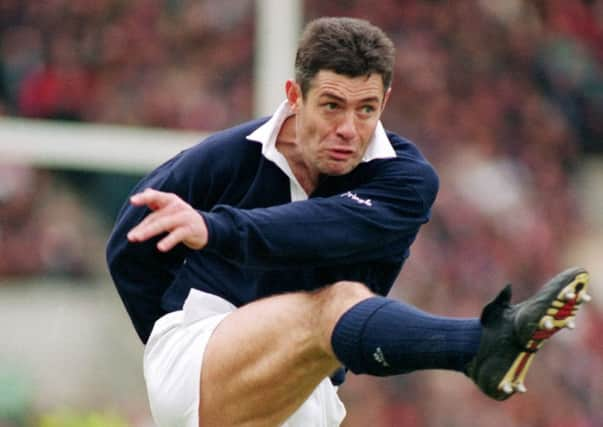Comment: Scots team needs to pick itself


The conditions might be nice preparation for the World Cup in an English autumn in just over a year’s time, but they certainly made it difficult to judge the merits of the four teams. One may have a better idea after today’s games. As it is, the general view was that Australia had the better of New Zealand despite being able only to draw at home in Sydney, and that Argentina, despite losing thanks principally to an early South African try, were a shade unlucky not to win.
This was of course a very different Argentinian side from the one we narrowly beat in the summer, but then that was hardly Scotland’s first-choice team either. What is clear is that the Pumas are likely to be formidable opposition when they come to Murrayfield in November.
Advertisement
Hide AdAdvertisement
Hide AdThat naturally is even more true of the All Blacks. The draw in Sydney may have prevented them from setting a new record of consecutive wins by a Tier 1 nation, but they have still been beaten only once – by England at Twickenham – since they so narrowly won the World Cup at Eden Park in 2011. They will surely still be the team to beat in autumn 2015. Yet one wonders if some of their stars – especially Richie McCaw – may be nearing the end. Still, over the years, the All Blacks have shown a remarkable ability to refresh their team – and yet remain the same.
Australia’s performance which stretched their unbeaten run to eight games was as significant as it was impressive. It will have set a few nerves jangling in England and Wales. It’s going to be almost as hard to get out of the World Cup pool featuring England, Wales and Australia as it will be to win the cup itself.
There were numerous notable absentees from last weekend’s matches: Dan Carter and Conrad Smith, Frik Du Preez and Victor Matfield, Will Genia and Dan Pocock, to name only a few. But of course this isn’t unusual. Far from it. Such is the attritional nature of top-class rugby today that the really unusual thing is for anyone to be able to have all stars available.
Here we have been priding ourselves on the fiercer competition that now exists for a place in the starting XV or match-day squad. In one sense this is a good thing. It keeps incumbents alert and prevents them from becoming complacent. We may even have three players challenging for every position and this suggests that we may have between 40 and 50 players capable of performing adequately at international level. This hasn’t been the case often in the past.
Nevertheless, if you flip the coin, things look a bit different. The best – the most successful – teams in any sport always have a number of players whose name is written down on the team-sheet without any discussion. No matter how good their challengers may be, there is really no challenge worth arguing about.
For years there has been no doubt who would wear the number 13 jersey for Ireland or the number 7 for New Zealand. There is no more doubt that, if fit, Paul O’Connell will be one of Ireland’s locks than there was about Martin Johnson’s selection for England in his playing days.
Leigh Halfpenny’s name goes down on the Welsh teamsheet without question, just as Jonny Sexton’s does on the Irish one. Indeed if you run your eye over the team selections for any of the consistently successful nations, you will probably conclude that only three or four positions at most would have been the subject of argument.
It is very different here. Run through the Scotland team from 1 to 15, and how many names are written down without discussion? I’m not sure that there are any. Perhaps Stuart Hogg if he is fit and in form? But then you remember that Gregor Townsend preferred Peter Murchie at full-back for both the semi-final and final of the League play-offs last season. Of our other current Lions – Sean Maitland, Richie Gray and Ryan Grant – only Maitland seemed an automatic choice, when fit, last spring. In pretty well every position, there is choice and uncertainty.
Advertisement
Hide AdAdvertisement
Hide AdCompetition is a good thing. If you look back to the days when we won the Grand Slam, any competition for a place in the Scotland XV was well concealed. In both 1984 and 1990 the team came close to picking itself. There would have been at least ten players, perhaps 12, whose names were written down without any discussion.
There was no doubt about them being the best, and this was because they were way ahead of their challengers. John Rutherford for instance owned the number 10 jersey as surely as Brian O’Driscoll Ireland’s number 13 one, and in 1990 Gavin Hastings was as automatic a selection at full-back as Leigh Halfpenny is for Wales today.
The conclusion is that our new coach, Vern Cotter, will not be on the way to forging a team capable of winning the Six Nations and performing creditably in the World Cup until the greater part of his starting XV in effect picks itself. And I should say, sadly, that on the evidence now available, we are a long way from that position.
So we console ourselves by dwelling on the competition for places, forgetting that this is the case only because we don’t have the outstanding players whose selection is unquestioned.